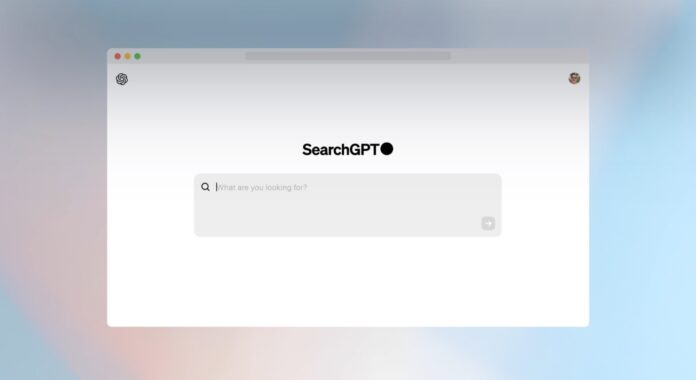Google has ruled the field of online search for a very long time, with hardly any real challengers to take the crown from it. However, months of wait since the first hype about it, OpenAI today has finally launched its new promising search engine, SearchGPT, posing as a challenger to Google’s dominance.
Think of a search engine that truly understands your question but goes even further to chat with you about the answer, producing real-time answers that are correct, with sources trustworthy. You heard that right, OpenAI brings life to this vision by releasing SearchGPT, a prototype designed to change how we find and interlink information on the web. The company claims this breakthrough AI search feature will return “fast and timely answers” with “clear and relevant sources.” Hence, this puts them in a completely new class of search engines.
Say goodbye to the days of scouring multiple web pages for information. With SearchGPT, conversational AI meets real-time web data, delivering up-to-date answers swiftly and efficiently. Whether you seek the latest news, research, or specific details, SearchGPT’s knack for immediate, relevant information makes it a game-changer in the search engine world.
Engaging follow-up conversations
The results on SearchGPT do not end with your question but are conversational, hence giving the user an easier way to continue seamlessly with follow-up questions. This shared context can enhance user experience, making the interaction feel more like a dialogue with an expert assistant rather than a flat search engine. This conversational feature is what will ensure you get full satisfaction with answers relevant to your needs.
Related
Commitment to publishers: Supporting a thriving ecosystem
OpenAI tries to create a “thriving ecosystem of publishers and creators.” SearchGPT does this through in-line named attributions with links, so the user knows precisely where their information is derived. This not only builds trust but makes the sources of information discoverable and appreciable to the user.
Publishers can have a big say in how their content is going to appear in SearchGPT. Although this prototype is focused on search, entirely removed from generative AI training, websites that opt out of AI training could still be included in search results. Consequently, this approach will enable publishers to take responsibility for how their content is exposed within SearchGPT and drive how it will be presented to best fit their strategies.
How SearchGPT competes with Google Search
OpenAI’s SearchGPT has the potential to compete with Google as a search engine, but its approach and capabilities suggest a different focus and methodology. Here’s how SearchGPT might position itself as a competitor:
1. Conversational Capabilities
- Real-Time, Contextual Conversations: Unlike the old search, SearchGPT gives a chance for continuous conversation. Users can ask follow-up questions, which the AI picks up in the context of previous interactions, to return a much more tailored and interactive way of searching.
- Enhanced User Experience: It is the conversational model that lets one get information in a more natural, human way than the keyword-based searches of conventional engines like Google.
2. Real-Time information
- Up-to-Date Data: SearchGPT draws on real-time data from the web, thus providing users with the most current information. This will be very important where issues keep changing rapidly, like news or even financial updates.
- Dynamic Responses: One of the major advantages is that bringing real-time information to SearchGPT means more relevance and freshness it’s able to deliver in response, which becomes very significant over static search results.
3. Transparent sources and attribution
- Clear Source Attribution: Each SearchGPT response includes in-line, named attributions with links to original sources, making it easy for users to build trust and verify the information independently.
- Publisher Ecosystem Support: OpenAI’s commitment to a rich ecosystem of publishers means that SearchGPT will support and drive traffic to original content creators, a feature that may turn out to be really attractive to both publishers and users alike.
4. User and publisher control
- Customizable Search Presence: This would allow publishers to have some control over how their content will appear in SearchGPT—that is, in a form they consider adequate. This flexibility may be interesting for publishers who want to have more control over access and presentation of their contents.
- Opt-Out from Generative AI Training: Sites that will opt out of AI training can still, therefore, be featured, striking a balance between data privacy and visibility.
Potential challenges and considerations
OpenAI’s new search engine, SearchGPT, has the potential to make its spot in the search engine industry. However, here are some potential challengers and consideration to consider:
- Market Penetration: Google’s dominance of the search market is overwhelming, thanks to a large user base and deep pockets. SearchGPT can infiltrate this market only by gaining substantial advantages for the user and overcoming user inertia.
- Scalability and Performance: SearchGPT was designed to scale to large-scale usage while maintaining consistent performance and accuracy, and that is what will be tested as it scales.
- User Habits: This could take time, as it requires extensive user education and adaptation to change traditional search methods into conversational search interactions.
Joining the waitlist
Those who want to see how far SearchGPT goes in this regard can join OpenAI’s waitlist to test the prototype and give useful feedback. Eventually, you can visit OpenAI’s SearchGPT page to find out more and join the waitlist.


